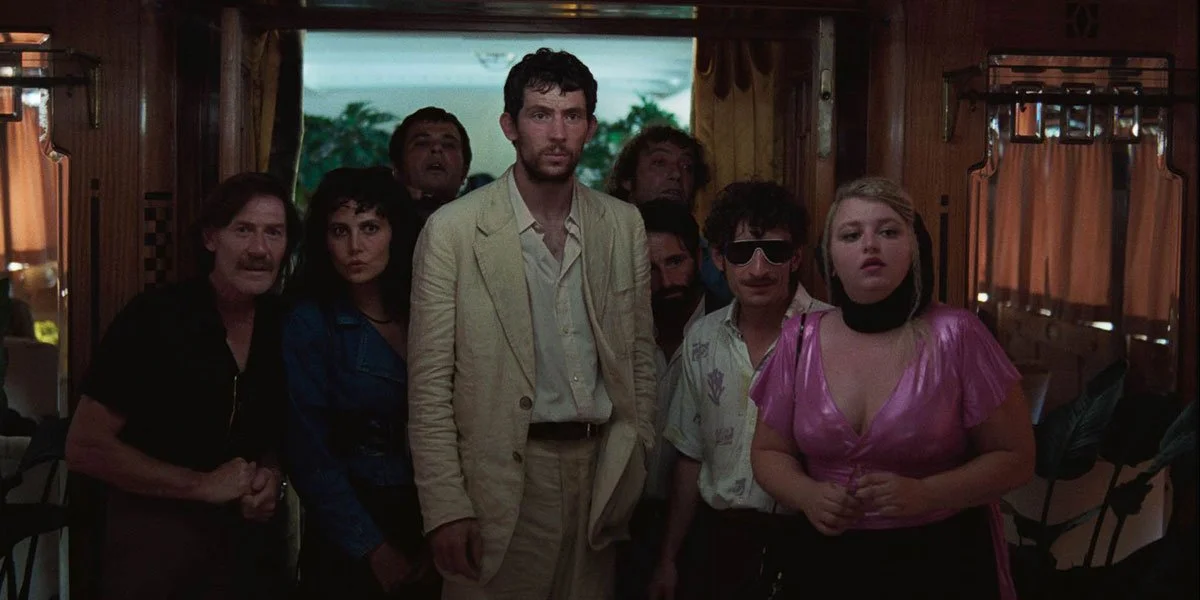The Best Movies of 2024 (So Far)
Courtesy of A24 and Janus/Sideshow Films
The last few weeks have brought floods of festival news, with the Venice Film Festival announcing its lineup on July 23 and the Toronto International Film Festival gradually releasing its roster of movies for the upcoming 49th edition over the past few days (with many more to come). Before audiences become inundated with the highly-anticipated new titles of the fall and winter that lead up to awards season, it can be valuable to look back and appreciate the fantastic films that have already been theatrically released in 2024 or to catch up with some that might have been missed. From box office money grabbers to arthouse darlings, a clear connection exists between some of the best films of the year thus far: a serious commitment to devoting onscreen narratives to untouched perspectives, expressive craftsmanship, and interesting, complex characters. Continue reading to check out Foremost Film's favorite movies already released this year.
Courtesy of MGM
‘Challengers,’ directed by Luca Guadagnino
Although Challengers is Guadagnino's most commercial and accessible film to date—with global box office earnings near $100 million—it still serves up all of the sensuality audiences have come to know and love in the director's work, no pun intended. Starring Josh O'Connor, Mike Faist, and Zendaya, Challengers revolves around the ever-changing and decade-spanning love triangle between three impossibly hot young tennis players, maintaining a hyper-focus on the evolution of the power dynamics between these central characters. Aligned with the nuanced romantic entanglements of I Am Love and crafted with the detailed sensibilities of Suspiria, Challengers feels like an exciting step for the Italian filmmaker, who has totally delivered the sexiest and most propulsive movie of the year so far. More dripping sweat and club beats from Trent Reznor & Atticus Ross, please.
Courtesy of Mubi
‘Do Not Expect Too Much from the End of the World,’ directed by Radu Jude
Do not expect any other movie of the year to have a name this long. Jude's latest work is a riotous and absurd criticism of contemporary capitalism, essentially told through a rambling day-long car ride in Romania's capital, Bucharest. Centered around Angela (the gut-busting Ilinca Manolache), a casting agent for a workplace safety PSA, the film follows the bullshit she endures trying to make an honest living in an increasingly impossible world and all the trials of her exhausting days as she weaves in and out of terrifying traffic. Intriguingly mirrored with inter-cuttings from a Romanian film (Angela Goes On, 1981) released during the sunset of Ceausescu's oppressive regime, Do Not Expect Too Much from the End of the World plays with cinematic references and "Communist Heritage" using an extraordinarily bleak yet uproarious spirit. So bold, refreshing, and demanding, Jude's vision stands out as one of the most singular movies released in 2024 thus far.
Courtesy of Janus/Sideshow Films
‘Evil Does Not Exist,’ directed by Ryûsuke Hamaguchi
Hamaguchi's Venice Film Festival prize-winning Evil Does Not Exist is uniquely transformative and tacitly unsettling in the most remarkable ways. The movie is a contemporary tale of a small snowy village near Tokyo where the inhabitants object to a corporation's efforts to purchase land in the area to create a "glamping" tourist trap that would unbalance the harmony of their community. Like Hamaguchi's other work, he closely studies his characters in the film but also concentrates on their rural surroundings, creating junctures of natural poeticism that feel reinvigorating for the director. Since its premiere last fall, audiences have constantly debated passionately over the film's final act, which takes a suspenseful and allegorical turn that will undoubtedly be remembered as one of the most iconic endings in recent memory. Evil Does Not Exist feels so unexpected and exciting as a followup to Hamaguchi's award circuit tour with 2021's Drive My Car.
‘Evil Does Not Exist’ will be available to rent/stream later this year.
Courtesy of A24.
‘I Saw the TV Glow,’ directed by Jane Schoenbrun
Since premiering at this year's Sundance Film Festival, Schoenbrun's sophomore feature, I Saw the TV Glow, has become one of the year's most critically hailed films. The movie stars Justice Smith and Brigette Lundy-Paine as two high school outsiders who form an unlikely bond over a Saturday night television show called The Pink Opaque, very much modeled after the 1990s Nickelodeon era in which the movie takes place. Entrapped by suburban lives that deny them the opportunity to confront their authentic selves, the duo begins to lose their respective semblances of reality as they escape deeper and deeper into The Pink Opaque. I Saw the TV Glow is interwoven with a unique melancholy and queerness indicative of the director's own experiences, inextricably connected to the movie's period setting and that era's conventional notions of individuality. Confined to the horror genre by many markets, the movie's most terrifying elements are intensely fixated on the ways life can pass you by if you refuse to see yourself truly. In the years to come, this film will likely become a significant cornerstone for transgender and queer representations of identity in cinema.
Courtesy of Neon Rated
‘La Chimera,’ directed by Alice Rohrwacher
For her latest feature, Rohrwacher once again transports her audiences to the Italian countryside, this time with a ragtag group of tomb raiders who spend their evenings searching for ancient Etruscan vestiges in La Chimera. Starring Josh O'Connor as Arthur (who is even more attractive speaking Italian), La Chimera is a lush, poetic glimpse into the social and economic tribulations of 1980s Italy, a civilization caught between its rich history and toils to adapt to a postmodern world. Arthur has a spiritual connection and appreciation for his artifacts, toeing the line between sadboy archeologist and common criminal, haunted by memories of past love. Beautifully shot (by frequent Rohrwacher collaborator Hélène Louvart) and written with an abundance of spirited humor, La Chimera makes Italians look like the funniest, fieriest people on earth in its celebrations of everyday people.





